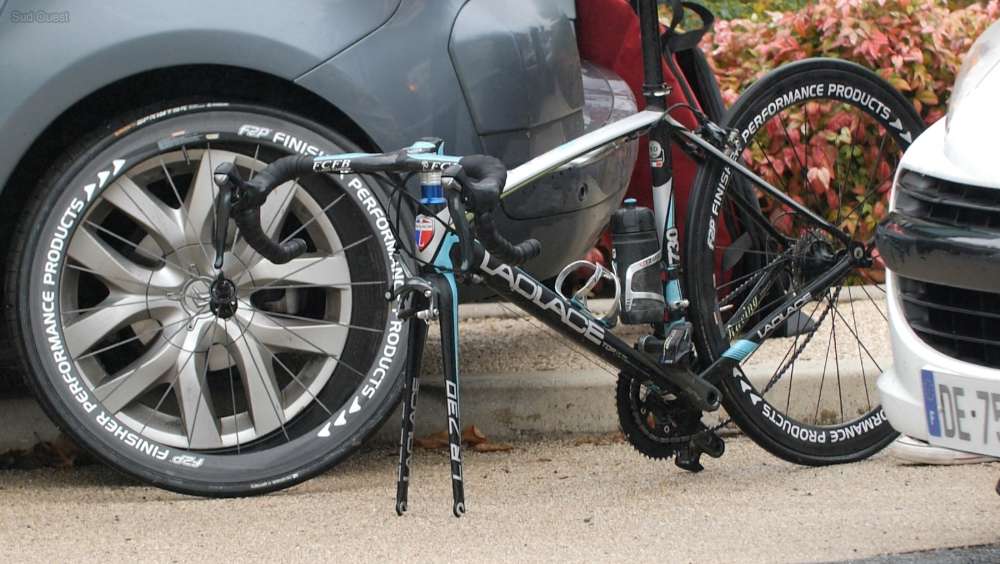French veteran rider reportedly caught using mechanical doping
43-year-old category 3 rider stopped after police tip-off


The first case of mechanical doping in France has reportedly been discovered after a 43-year-old veteran racer from the Dordogne area was caught, following a tip-off and investigation by French police and the French Anti-Doping Agency (AFLD).
The rider has not been named, but his bike was seized and he was questioned by police. He reportedly admitted cheating when stopped after a race in Saint-Michel-de-Double, in the Dordogne region near Bordeaux.
It seems the AFLD had been monitoring the rider after a series of strong performances and a 'striking' climbing ability, with regional anti-doping counsellor and former professional rider Christophe Bassons playing a key role in stopping the rider escaping during Sunday's investigation.
According to a report by French journalist Thierry Vildary, who has led a series of investigations into mechanical doping and who was with investigators when the rider was caught, the mechanical doping consisted of a rudimentary 250-watt Vivax motor hidden in the seat tube that drives the bottom bracket.
Vildary believes that more technologically advanced forms of mechanical doping have been used in professional races and has questioned the UCI's use of a magnetic tablet device as an effective method of detection.
Vildary and a camera crew filmed the French veteran rider while he was on the attack with junior rider Mathys Fedrigo – the nephew of former professional rider, Pierrick Fedrigo. The rider then quit the race with a puncture, apparently worried about the number of spectators at the local race. Bassons eventually caught up with him and demanded to see the bike.
"He seemed surprised and then when I took out the bidon on the downtube, I saw the electrical wires," Bassons said, according to L'Equipe.
The latest race content, interviews, features, reviews and expert buying guides, direct to your inbox!
The veteran rider's bike was reportedly seized by local gendarmes and was stripped down to reveal the full extent of the hidden motor. He reportedly admitted to cheating. Under French law, the rider could be prosecuted for sporting fraud, with French police keen to know how much prize money he had earned in recent races. If found guilty of mechanical doping he faces a lengthy ban from the sport.
This is the second reported case of mechanical doping among veteran racers this year. An Italian rider was caught in the summer with a similar, rudimentary device in a race near Brescia. Belgian cyclo-cross racer Femke van den Driessche was caught with a hidden motor in a bike at the 2016 cyclo-cross World Championships. She was banned for six years.
New UCI President David Lappartient has promised a crackdown on mechanical doping after doubts were raised about the efficiency of the UCI's magnetic tablets. He said that heat guns and x-rays will be used alongside the UCI's tablet device at future professional races.
"My fear is that we'll find a lot of this kind of cheating in the amateur ranks because the technology is becoming accessible and we don't have the same means of detection as in professional cycling," French Cycling Federation president Michel Callot said.
Premier contrôle d'un vélo équipé d'un moteur lors d'une course locale en France ! #cyclisme #twittcyclos pic.twitter.com/9U4ezQYhFp
